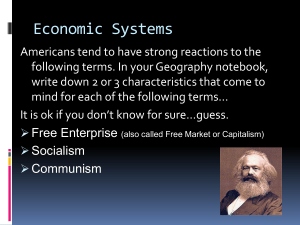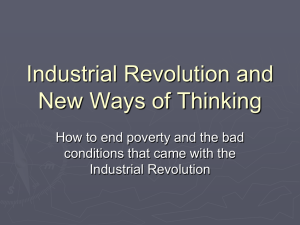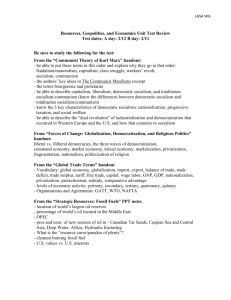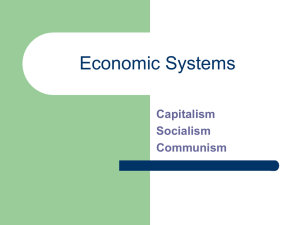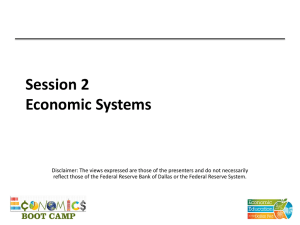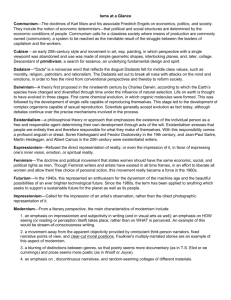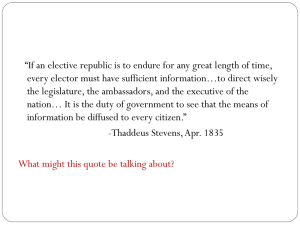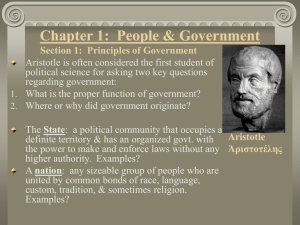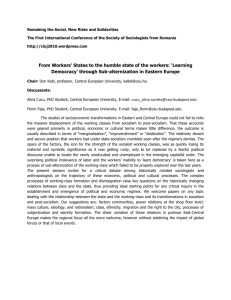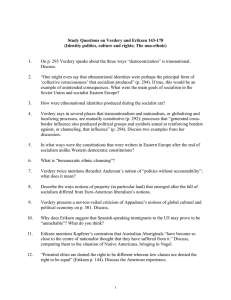katherine verdery, socialism
advertisement
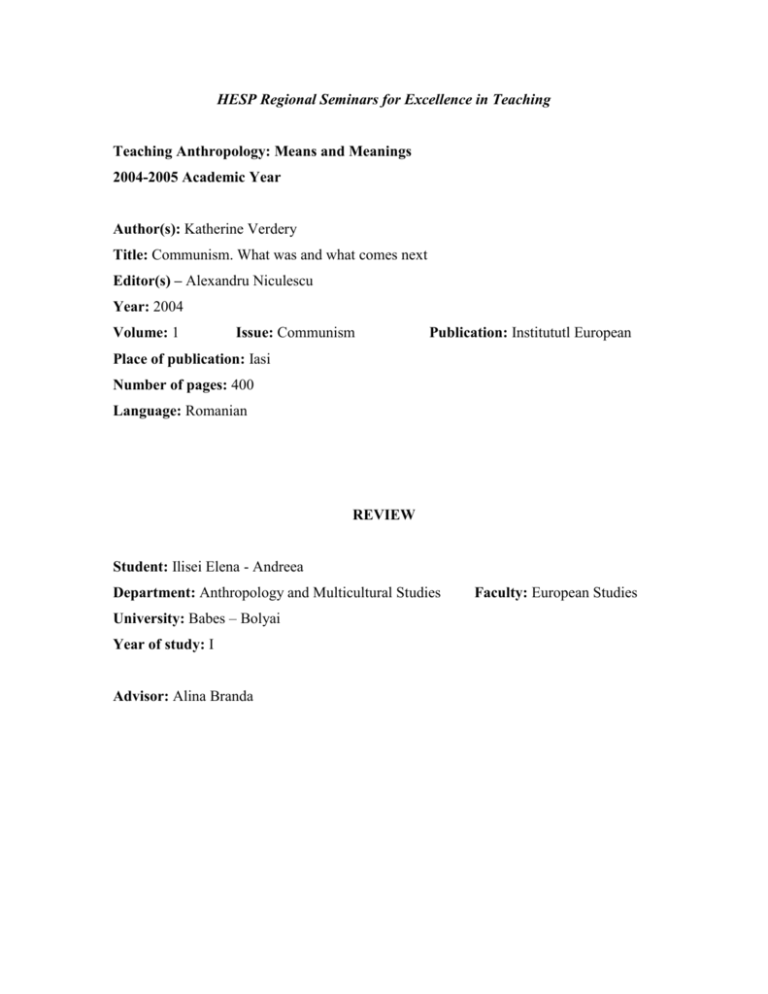
HESP Regional Seminars for Excellence in Teaching Teaching Anthropology: Means and Meanings 2004-2005 Academic Year Author(s): Katherine Verdery Title: Communism. What was and what comes next Editor(s) – Alexandru Niculescu Year: 2004 Volume: 1 Issue: Communism Publication: Institututl European Place of publication: Iasi Number of pages: 400 Language: Romanian REVIEW Student: Ilisei Elena - Andreea Department: Anthropology and Multicultural Studies University: Babes – Bolyai Year of study: I Advisor: Alina Branda Faculty: European Studies Understanding socialism and post-socialism it’s nowadays an important issues, a provocation for lots of specialists, being them scholars, politicians or common people. The aftermath of socialism produced in the area lots of unpredictable evolutions that surprised the Western specialist in the field, used to approach the system throughout the so called “totalitarian paradigm”. According to this “the communist system was a structure of power oriented from the top to the bottom, where a small political elite was ruling a huge passive mass of isolated individuals who were constrained to obedience by physical menace and ideological persuasion”1. Exactly this kind of interpretations is strongly and tightly reasoned rejected by Katherine Verdery2 in the present volume of essays. One of the first anthropologists to come in the area in the early 70’s, she conducted a committed research, based on a sensitive ethnographic field work and lots of other sources (newspaper articles, discussions in the trains and taxis, the political discourse of different political parties, televisions shows), that enables her to formulate some very insightful opinions on the situation. Her book is structured in three parts, a brief Introduction and an Afterward as well. The essays included in the volume were initially conceived and published separately, in specialized American reviews. The Introduction presents a short background of her field work in Romania and a brief but consistent analysis of the Western theories on communism during the Cold War and after. The first part analyze the socialism from two very important point of view: the political economy and its particularities, trying to identify how this was leading to the failure, and the political economy of the time like an example of the way in which the party-state was operating. The next two parts offer a comparative analysis of socialism and post-socialism, focused on this second phenomenon, by bringing into discussion the question of identity (gender, nationality, family and the paternalistic state) and, in the third part, some political economical processes and their evolution during the transition 1 Oliver Freeman, The societity, this big abscense. Critical essay about Western analisys upon the postcommunist nationalism 2 Ketherine Verdery is a teacher at the Michigan University, the director of Russian and Eastern European Studies Center, with a long work field and life experience in Romania process (privatization, political reorganization of the state, market economy, democratization). In her analytical discourse, throughout the entire book, the author tries to bring to surface some aspects of the change, like symbols and also social processes, that were hard to perceive or even misunderstood because of the kind of theories like the “totalitarian paradigm” I’ve already mentioned or the quest to identify capitalistic elements in the post-socialist structures. For instance, in this kind of examination, the privatization and civil society are looked as symbols of rhetorical discourse of new politicians, and not only as simple social processes. Or the Caritas phenomenon, to mention one more example, is looked not only like a fast way of enrichment, but also as a sort of revolution in the people’s mentality with regards to money, their nature and their functions. The book of Katherine Verdery testifies the advantages of the anthropological approach in understanding the changes taking place in Eastern Europe after the fall of communism. Like Eniko-Magyari-Vincze shows: ”The empirical experiences of the author in the field lead the readers to a better understanding of the so-called ‘ethnography of the post socialist state’ and the impact that decomposing of paternalistic socialist state had upon the reform process”.3 Written in an accessible manner, proving a wide variety of information and an incredible complex understanding of the local situation, the book is available to the specialist as well as to the public, challenging both parts to further debates on the topic, from an innovative perspective. 3 Eniko Magyary-Vincze, Colin Quigly, Gabriel Troc (eds.), Multiple meetings. Western anthropologists in Eastern Europe, Ed. EFES, Cluj – Napoca, 2000

